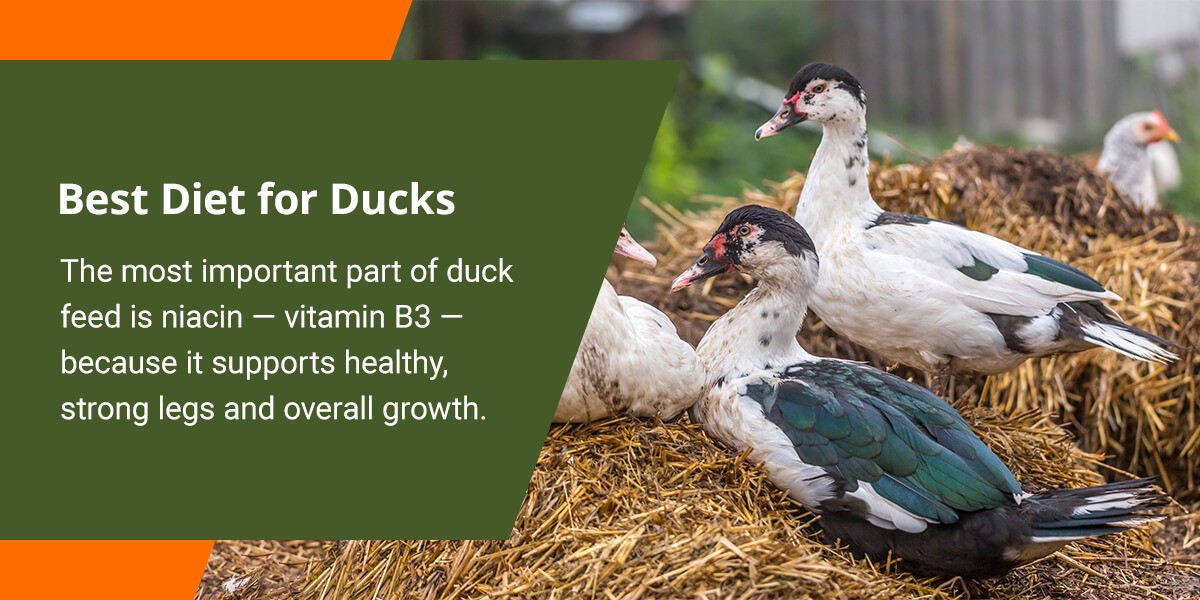It’s tempting to think that chickens and ducks can share the same feed, especially when they share the same space. However, Can Ducklings Eat Chicken Food? The answer is generally no. While these birds might coexist peacefully, their nutritional needs differ significantly, particularly for growing ducklings. Supplying the correct feed ensures optimal health and development for each species.
Duck vs. Chicken Food: Key Differences
Although ducks and chickens share some similarities, their feed requirements aren’t identical. Factors like texture, age, and species-specific nutrient needs necessitate distinct formulations.
Chicken Dietary Essentials
Chicken feed typically consists of carbohydrates, but an excessive amount can hinder growth. It’s important to monitor crude protein levels, which indicate the nitrogen content, and ash content, which represents inorganic minerals.
While chickens enjoy scratch grains as a treat, these shouldn’t replace their primary feed. Overindulging in scratch can lead to nutrient deficiencies if they skip their pellets, mash, or crumble. Seasonal changes also impact chicken appetites; they may eat less during summer. Supplementing with protein and vitamins during warmer months or adjusting feed concentration becomes crucial. Winter requires increased feed portions to provide energy for warmth. Feed texture matters as well: Meat birds thrive on pellets, layers benefit from mash, and broilers consume crumble. Younger chickens need more protein than mature ones. Specific needs can also be met, such as higher calcium for egg-laying hens or increased protein for meat production.
Alt text: Ducks happily eating duck feed in a farm setting.
Duck Nutritional Requirements
Niacin (vitamin B3) is vital for ducks because it supports healthy leg development and overall growth. Insufficient niacin can lead to deformities or weakness. Adequate protein amino acid levels are essential for healthy aging, but avoid excessively high-energy blends, particularly for ducks raised for egg production, to maintain a healthy weight for prolonged laying. Ducks might eat mash, but they often experience reduced growth compared to those fed pellets. Ducklings require a starter diet of small pellets or crumbles before transitioning to larger pellets at around two weeks. Ultra-fine feed should be avoided as it poses a choking hazard. While feeding bread to ducks is a common practice, it provides little nutritional value and can be harmful.
Risks of Feeding Ducklings Chicken Food
Feeding ducklings chicken feed can have several negative consequences, stemming from the differing nutritional requirements of these young birds:
Excessive Protein Intake
Chicken feed typically contains high levels of protein to support rapid growth for meat production or optimize egg laying. This high protein content can be detrimental to ducklings, leading to accelerated growth that causes leg and foot problems. In wild ducklings, too much protein can lead to angel wing, a condition that prevents them from flying, thus interfering with migration.
Niacin Deficiency
Ducklings require a high level of niacin for proper development, especially in their early stages. Chicken feed doesn’t provide sufficient niacin for ducklings because chickens need less of this nutrient. Niacin is water-soluble and not stored in the body, so regular intake is essential for ducks.
Differences in Feeding Habits
Chickens typically don’t drink water while eating, whereas ducks require water with each mouthful to aid digestion and prevent choking. Therefore, without enough water available, ducks may struggle to eat dry chicken feed safely.
Alt text: Image displaying text “Ready to learn more? Reach out to us today!” encouraging readers to contact the feed supplier.
Choosing the Right Feed for Your Flock
Selecting the right feed involves ensuring it’s free from harmful additives and excessive fillers. Nutritional deficiencies can weaken your birds, reduce egg laying and hatching rates, and impact feather and body growth. Understanding the specific needs of your flock, whether ducks, chickens, or both, is crucial for their health and well-being.
For more information on organic duck and chicken feeds, contact a feed specialist. They can answer any questions and help you choose the best feed options for your flock.
